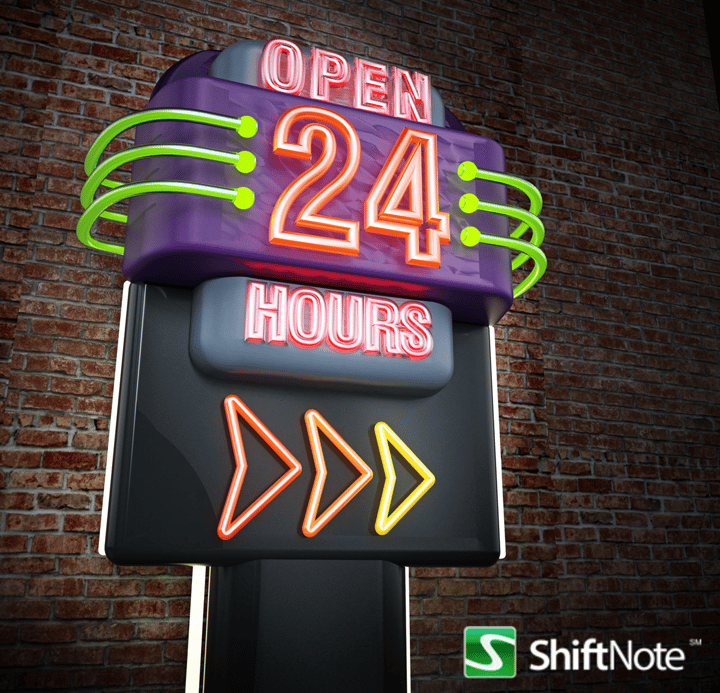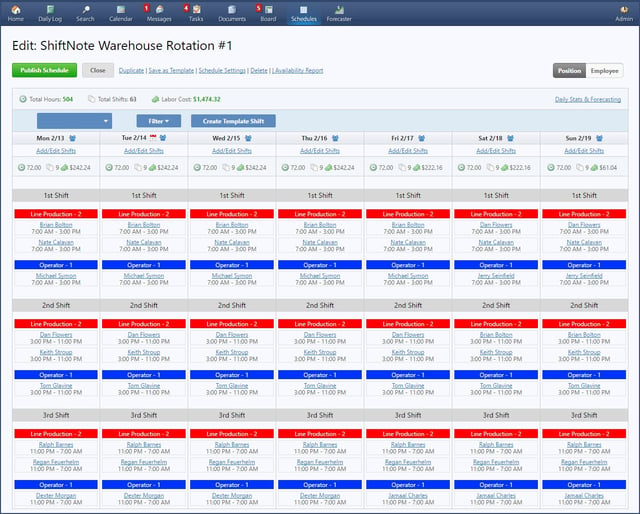
Are you operating a nearly non-stop business? This is quite the undertaking -- demanding excellent leadership, foresight, and planning from management, as well as commitment, dedication, and flexibility from staff members.
Not only should you make sure that your staff is healthy, happy and productive within a demanding work environment, you also have to deal with complex financial issues associated with running this type of business. What’s more complicated is managing the shift schedule of a round-the-clock workforce.
The solution? Implement an 8-hour shift schedule with rotating work shifts.
A rotating 8-hour schedule has multiple benefits for restaurant and hospitality businesses. While many industry veterans understand how it works, others are new to the idea. This post will dive into how 8-hour schedules work: including the pros, cons, and how to implement an 8-hour work shift schedule. Let’s dive in!
What Are Rotating 8-hour Shift Schedules?
8-hour shifts that provide 24/7 coverage for your business by maximizing the number of consecutive days employees have off, while still maintaining they work 40 hours per week. There are multiple types of 8-hour schedules you can implement at your place of business: including 8-hour day, 8-hour swing, and 8-hour night shifts. It’s really about maximizing your schedule for efficiency for your business and your employees.
Pros of 8-Hour Schedules
There are many advantages of 8-hour shift schedules, for both the employee and you (the employer or shift manager). They are as follows:
- PROS FOR EMPLOYEES
- It’s fairer to everyone scheduled:
- Employees receive two days off in a row and one weekend every seven weeks.
- Employees have at least two days off at a time after working a week.
- Employees typically can have three days off after working seven consecutive nights.
- Employee knows what they are working because it only changes on the week (if the employee changes).
- Better work/life balance.
- PROS FOR EMPLOYERS
- You can run a 24-hour operation.
- You can get around-the-clock coverage between as little as four employees. (For a smaller operation especially, this is a huge benefit.)
- It can be easier to schedule.
- Scheduling fewer employees may help with reducing extra cost with insurance and healthcare costs.
- There’s likelihood of a reduction staff accidents and/or errors due to the amount of rest time in between shifts.
- Your staff will have better attention spans, reaction times, motor skills, less memory lapses and less irrational decision-making vs. a 12-hour shift due to less overwork and fatigue. This results in a better customer experience.
- It simplifies scheduling. More shift switches equals operational slowdowns, resulting in less efficiency with having to deal with more staff.
- Less missed alerts and communication breakdowns happen between excessive shift changes.
- You can set performance expectations for an 8-hours shift, like: sales, parts per min, ETC. Whatever you track as your KPI's need to be taken into account for performance ratio.
- Allows you to better plan when you will hold team meetings and how will you roll out new protocols and agendas.
- Considerations
- It’s always good to evaluate both sides, so here are a few of the negatives of 8-hour schedules:
- It requires up-front planning; but it pays in the long run.
- It is not conducive to employees who like working longer hours, but fewer days.
- For optimal efficiency, rotating 8-hour shifts require the right software in place.
How to Keep Track of Schedules
We’re here to save the day. ShiftNote’s state-of-the-art technology allows you to customize your operation’s scheduling to accommodate 8-hour shift schedule blocks, or any shift-scheduling model that works best for your business.
Our cloud-based employee scheduling software is a workforce management tool that makes creating schedules for any size business simple. Set and forget your scheduling process, saving you energy, time, and money. In fact, you can create a set of schedules and duplicate it as manay times as you want, keeping important shift information and employee specifications all in one place.
To set an 8-hour shift schedule, for example, you could use ShiftNote like so…

Then you can use our Online Manager’s Logbook to log all your shift notes electronically, so you can access them anywhere -- even on your phone! It allows you to improve communication to your staff, maintain accountability, and measure important data for future insights.


